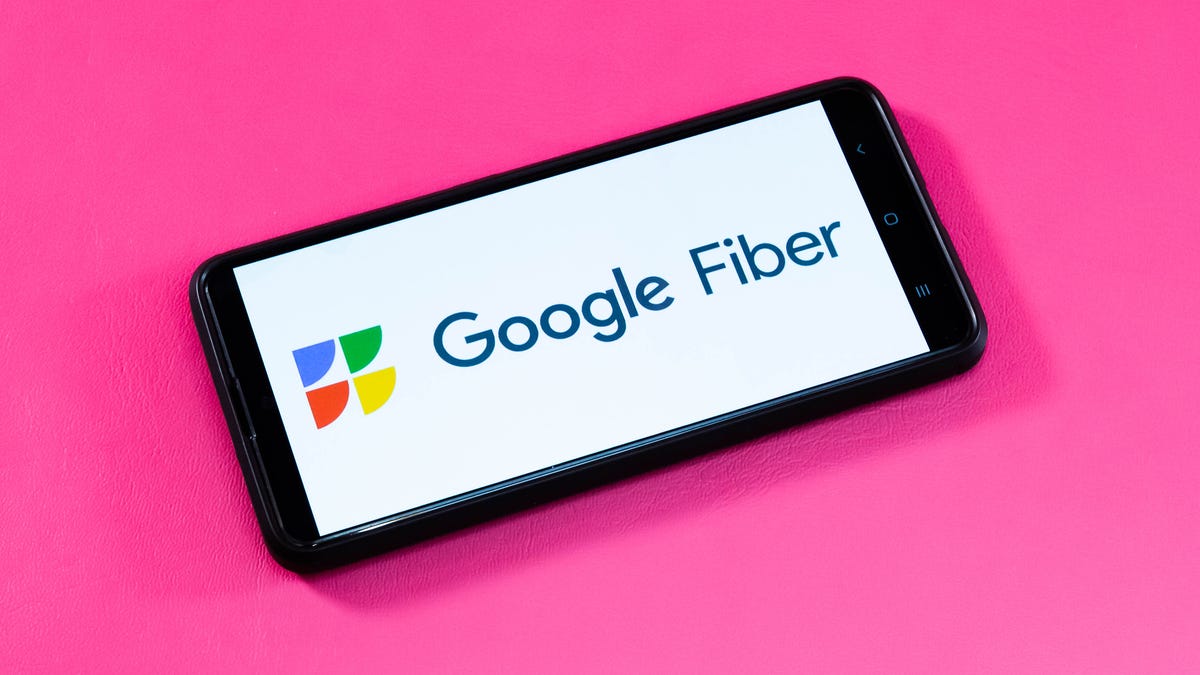
Have you ever felt like you had to sign away your firstborn child — or at least the next two years of your life — to get internet service in your area? You’re not alone. It’s easy to be swayed by slimmed-down introductory prices, but lurking behind that first-year cheer can be a heady bill increase and unrelenting extra fees if you dare change your mind or (shudder!) have to move.
Thankfully, that’s changing. As we become more dependent on our broadband connections, competition is starting to brew among internet service providers. That’s one reason why some ISPs drop their contract requirements. You may even find internet deals offering to buy you out of your contract to get you to switch.
That’s good news for anyone looking to explore their home internet options. If you’re in the market for a new provider and prefer one that won’t ask you to sign on the dotted line, keep reading for the full rundown of no-contract internet providers.
One bit of business first: Just because you don’t have to sign a term agreement doesn’t always mean you’re getting the best price. Some providers will put a premium on their pay-as-you-go plans while their contract rate will be much cheaper. To help keep your costs in perspective, we’ll consider the cost per megabit per second for each listed no-contract internet provider. It’s an excellent way to compare apples to apples.
Price range $70 – $100 per monthSpeed range 1,000 – 2,000MbpsConnection FiberHighlights Unlimited data, no contracts, equipment included
At first glance, Google Fiber plans seem expensive. There are only two options, one at $70 per month and the other at $100 monthly. However, those two plans offer gigabit (1,000Mbps) and 2-gigabit speeds, so the actual cost per Mbps is 7 and 5 cents, respectively, which is excellent. You’re getting a fast connection for your money. On top of that, your equipment is included in your monthly price, which is a great deal.
The biggest challenge here is availability, as Google Fiber can be found only in a handful of metro areas across the country: Atlanta, Austin, Charlotte, Huntsville, Kansas City, Nashville, Orange County, Provo, Raleigh-Durham, Salt Lake City, San Antonio and West Des Moines. Google Fiber does have plans for 2023 expansion into the Arizona cities of Chandler and Mesa, as well as Lakewood and Westminster in Colorado and Omaha, Nebraska.
Price range $20 – $80 per monthSpeed range 100 – 1,200MbpsConnection CableHighlights Low promo prices, unlimited data, no contracts
This cable internet provider boasts some of the best pricing you’ll see in its first year. It has quite a range of pricing across the various markets it serves — including Austin, Boston, Chicago, Dallas, Houston, New York City, Philadelphia, San Antonio, San Francisco, Seattle and others. Still, it has an aggressively competitive average cost of 8 cents per Mbps for the promo price. In many markets, you’ll find a 400Mbps plan for $26 per month. That’s excellent. But that tough-to-beat price for cable internet falls closer to the pack after your introductory period, as the average cost jumps to 57 cents per Mbps. But you’ll be hard-pressed to find a better price for your initial years of service.
Price range $55 per monthSpeed range 10 – 100MbpsConnection DSLHighlights 1TB monthly data allowance, no contracts
Available to approximately a third of its footprint, AT&T fiber plans provide excellent value. There are five different plan options (300, 500 and 940Mbps, as well as 2-gigabit and 5Gbps) ranging in price from $55 to $180 per month, with no data cap. Altogether, AT&T’s fiber plans average 10 cents per Mbps, which is solid, but even more spectacular are the multi-gigabit plans, which average out to 5 cents per Mbps, which is outstanding.
AT&T’s DSL plans, which are more readily available, offer significantly less value, averaging just over $2 per Mbps. The plan with the least bang for your buck is AT&T Fixed Wireless, which offers max download speeds of just 10Mbps for $70 monthly. That comes out to $7 per Mbps.
None of AT&T’s internet-only plans require you to sign a contract to receive the lowest price. However, you must sign a term agreement to get specific bundle deals. So make a note of that caveat when weighing your options.
Price range $30 – $70 per monthSpeed range 200 – 940MbpsConnection FiberHighlights Unlimited data, no contracts, equipment included with gigabit tier
There is no need to worry about cancellation fees on any CenturyLink plans — none of them come with any contractual commitments whatsoever. The value is pretty strong with CenturyLink, too — the company’s fiber plans average out to a cost of 16 cents per Mbps, while the DSL plan rings in at a value of $1 per Mbps, which is hard to beat among DSL offerings.
There is an additional cost for your modem/router rental, but CenturyLink does allow you to skip it and use your own equipment.
Price range $40 – $70 per monthSpeed range 100 – 1,000MbpsConnection FiberHighlights Unlimited data, no contracts
Available in many suburban and rural areas where it often competes with satellite providers (most of which require a two-year contract), Kinetic by Windstream sets itself apart by ditching term agreements altogether. You can get either DSL (a majority of its footprint) or fiber service (currently about one-fifth of its network) for an average cost of 50 cents per Mbps during the first year and 56 cents per Mbps after that.
Price range $50 – $90 per monthSpeed range 300 – 940MbpsConnection CableHighlights Simple pricing, unlimited data, no contracts, modem included, free access to nationwide Wi-Fi hotspots
Spectrum is about as straightforward as you can get when looking at cable internet providers. There are three plans — 300Mbps, 500Mbps and 1 Gig — and all are free of contracts and data caps. Across all three, the average cost per Mbps in the first year is 14 cents, which is quite good for cable internet. Perhaps more impressive, the second-year jump isn’t too steep (for an ISP, anyway), up to an average of 19 cents per Mbps.
Price range $50 – $120 per monthSpeed range 300 – 2,000MbpsConnection FiberHighlights Unlimited data, no contracts, free equipment with gig service
Verizon Fios, the company’s fiber-optic internet option, doesn’t require contracts for its home internet plans. Additionally, it scores high customer satisfaction marks in every ISP survey. It nabbed the top spot in the most recent American Customer Satisfaction Index study, scoring 72 out of 100 points. Verizon Fios did equally well in the 2022 J.D. Power ISP study by grabbing the highest score in the East region for the 10th consecutive year. As for pricing, Verizon Fios is fairly clear-cut, featuring three different plans — 300, 500 and 940Mbps — with an average cost of about 14 cents per Mbps.
Additional no-contract internet providers to consider
- Cox Communications: There’s flexibility here, but it comes at a cost. Cox doesn’t require you to sign a contract to receive internet service, but it does encourage customers to sign a one-year agreement, which takes $10 off the monthly bill. If you agree to the contract, you are paying an average of 53 cents per Mbps, while those who pass on the term agreement must pay an average of 67 cents per Mbps. Cox also offers StraightUp Prepaid Internet, which provides the simplicity of one plan (100Mbps download) with all equipment, installation and taxes included in the price. For that streamlined approach, you’ll pay 50 cents per Mbps, which is better than the average of all other plans Cox offers but doesn’t give you any options for faster download speeds.
- Frontier Communications: You won’t have to worry about binding contracts if you have access to Frontier Internet (DSL) or Frontier Fiber. In addition to that, equipment fees are included in the monthly price, too. Customers of Frontier Fiber will see an average cost of 7 cents per Mbps for first-year pricing, while DSL customers can expect to pay $2.17 per Mbps.
- Mediacom: Though you’ll need to contend with data caps, Mediacom’s Xtream internet selections do not require you to sign a long-term contract. Across all four plans, you can expect to pay an average of 28 cents per Mbps during your first year; after that, the average cost per Mbps jumps to 43 cents. It should be noted that its fastest plans (Internet 300, 600 and the Gig plan) have an additional scheduled increase after 24 months.
- Metronet: This Midwest fiber-optic internet provider serves 16 states across the country. No term contracts are required for any plans, nor are there additional equipment fees. The promo prices are decent, especially for its gigabit plan, which is a nifty 6 cents per Mbps. But the average cost per Mbps of its regular rates is 22 cents, which is fair, but nothing special.
- Optimum: All Optimum plans feature no data caps, no contracts and some of the best promo pricing for cable internet. Your first-year pricing will feature an average cost per Mbps of just under 12 cents, which is one of the most affordable rates we’ve seen for that internet connection type. After 12 months, however, the average cost per Mbps jumps to 46 cents, which is middle of the road, at best.
- Rise Broadband: This fixed wireless internet provider features service with download speeds of either 25Mbps or 50Mbps, and with both, you can select unlimited data or a 250GB data cap. The average cost per Mbps in the first year is $1.40, increasing to $1.70 after that.
- Sparklight: This ISP is a bit unusual among cable internet providers in that it doesn’t play the game of trying to entice you with a promo price that then jumps up after 12 months. Instead, what you pay now — an average cost per Mbps of 19 cents — is essentially what you’ll be paying later. However, it does discount its Freedom Connect 600Mbps plan for the first three months of service. Also, Sparklight enforces data caps, so there’s the potential for additional fees if you exceed your monthly limits.
- Starlink: Elon Musk’s budding internet service is unique among satellite internet providers because it doesn’t require a contract. Also, the average cost per Mbps of its standard plan (100Mbps) is just over $1, which is excellent for that connection type. The premium plan, which offers 250Mbps, knocks the average cost per Mbps down to 54 cents. That’s pretty impressive for an internet technology known to fall on the pricier side. That said, Starlink still requires a bit of a commitment — you must make a one-time equipment purchase of $599 (or a whopping $2,500 if you’re purchasing the premium plan). That’s a sizable chunk of change that most cable and fiber internet customers get to avoid. But this could be a digital lifeline for rural regions of the country that don’t have access to those connections.
- Starry Internet: This fixed wireless provider offers a solution similar to 5G home internet in that it uses millimeter-wave technology. It features no contracts, and the price includes equipment, installation costs and unlimited data. The average cost per Mbps for Starry Internet is a reasonable 25 cents.
- T-Mobile Home Internet: Similar to Starry, T-Mobile Home Internet features everything under one price, with no contracts required. Included in that price — $50 a month (or $30 per month for eligible Magenta MAX mobile customers) — are all equipment, installation fees and taxes. That said, the cost per Mbps is difficult to pin down since speeds will vary by address. T-Mobile claims most customers will average between 33 to 182Mbps download speeds. However, when CNET tested T-Mobile Home Internet, we hit a max of 132Mbps, and we’ve also received anecdotal evidence of customers hitting speeds of up to 300Mbps in some areas. Meanwhile, per T-Mobile, it’s possible some could potentially max out at 33Mbps. In other words, your mileage may vary — but if your address has a strong connection to a nearby cell tower, T-Mobile could be well worth a shot.
- Verizon 5G Home Internet: Verizon 5G Home Internet (its 5G fixed wireless internet solution) is a bit squishy because its download speeds, ranging from 85 to 1,000Mbps, aren’t guaranteed. But assuming the average of 300Mbps, the average cost per Mbps would be 17 cents. However, Verizon 5G Home is an all-in price that includes taxes, fees and equipment. Additionally, qualified Verizon Wireless customers can get 50% off the cost of Verizon 5G Home, which will significantly cut your costs and make this a very intriguing option.
- WOW: WideOpenWest, which prefers to go by WOW, aims to wow its customers by requiring no contracts and very competitive starting rates. This cable internet provider offers five different plan options, with a highly competitive average cost of just over 12 cents per Mbps for its promo price and 21 cents after the first year of service.
- Xfinity: Unfortunately, Xfinity requires customers to sign a contract to get its lowest price on internet service. Sometimes, and for some plans, it even calls for a two-year commitment. That said, Xfinity does offer a Prepaid Internet option that requires no contract and gives you 30 days of internet service for $45. No deposit is required and no fees, but you must make a one-time modem purchase of $35. The max download speed offered is 50Mbps, meaning this service has an average cost of 90 cents per Mbps, much higher than the 25 to 39 cents per Mbps that other Xfinity customers will pay.
- Ziply Fiber: This company began offering service in 2020 after acquiring networks in four Northwest states from Frontier Communications. It aims to simplify the purchasing process by skipping credit checks, data caps and term agreements. It features DSL and fiber plans, with the average cost per Mbps at 25 cents for the promo period and 40 cents after the first year.
Best no-contract internet providers FAQs
What should you look for in a no-contract internet provider?
As discussed earlier in the article, you’ll want to look at the cost per megabit per second of the provider’s plans to better understand whether you’re getting a good deal. While it’s fantastic to avoid having to sign a contract (and escape the looming threat of early termination fees), you still want to do your homework and make sure you’re not paying a premium for the freedom of not having a term agreement.
Also, look into the type of internet connection offered by the ISP. While some households — especially those in underserved or rural areas — may not have many options, the general rule is that satellite internet is better than DSL, cable internet is better than satellite, and fiber internet trumps them all. 5G home internet, which made significant strides in 2022, is also becoming a legitimate option for many across the country.
Who’s the best no-contract internet service provider?
It may sound like a cop-out, but the best no-contract internet provider for you is the one that’s serviceable at your address. As we’ve mentioned many times in our ISP reviews, all things being equal, if you can get fiber internet at your location, that’s the way to go. It’ll give you the best performance of all the internet connection types — you’ll get symmetrical download and upload speeds — and will often be the most affordable in terms of cost per megabit per second. Google Fiber, which includes all equipment costs and fees in your monthly rate, is the cheapest at 7 cents per Mbps. But its availability pales compared to the fiber plans of AT&T, for example. If you live in one of the 12 metro markets where it offers service, Google Fiber is an easy choice, but AT&T Fiber might be everyone else’s top option.
Can I get Wi-Fi at home without a contract?
We get this question quite often, as many assume they must pay for Wi-Fi separately from their internet service. But that’s not the case, generally. You often get Wi-Fi when you sign up with an internet provider, as many will provide you with a gateway. That’s a combination of a modem (which connects your home to the internet) and a router (which takes that internet signal from the modem and broadcasts it wirelessly to the other devices in your home). Even if your ISP only provides the modem, it will allow you to rent a router or use your own. Basically, if you can get an internet connection at your address without having to sign a contract, you should have options to have Wi-Fi at your home without committing to a contract.





